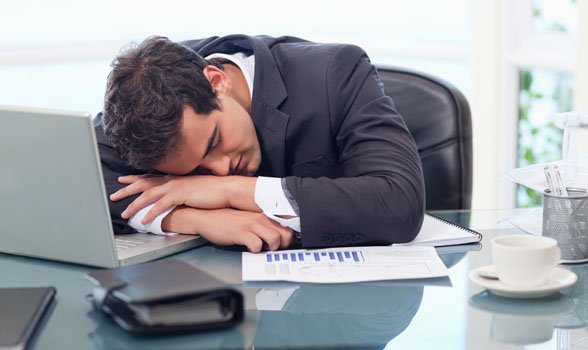Who among us hasn’t stolen an afternoon nap beneath a corner cubicle or taken 20 minutes to "rest our eyes” in a darkened room on our boss’ dime? I, for one, plead guilty to sleeping on the job. While working at a huge non-profit with air conditioning as glacial as the work pace, I found an empty conference room on an unoccupied floor under stalled construction. With my various soul-numbing tasks completed, I ascended to my private aerie at approximately 2pm each afternoon. There, I discovered the joys of the workday siesta.
Yes, it was wrong. There was no provision in my job description that carved out afternoon naptime. And, in general employers exclude sleep time in calculating how many hours employees work. But, federal laws do compensate sleep for certain workers, such as home aids and long haul truckers, whose jobs require them to nod off while they're on the clock.
Paid sleep time falls under the Fair Labor Standards Act (FLSA). Enacted in 1938, it included a host of protections for workers, in particular bumping minimum wage to 40 cents per hour and holding employers liable for ensuring that certain employees collect pay during long shifts that require they get rest. Since then, the FLSA has become an umbrella law under which a variety of worker's rights issues fall.
“Under the FLSA, an hourly, overtime-eligible employee who is working less than a 24-hour shift must be paid for times when he or she is permitted to sleep when not busy,” Robert S. Craig, a New York Labor Lawyer tells us.
The FLSA, while complicated, works like this: If, say, an employee is scheduled to work for 23 hours and 55 minutes, then he or she must be paid for every hour on the job during which they are permitted to sleep. By contrast, if an employee works a full 24-hour shift, an employer does not need to pay the employee for time spent sleeping or eating. In that situation, the law allows an employer and employee to work out the paid-sleep-time issue themselves. This is often the case with live-in nannies who don't get paid for time spent sleeping in their employers' homes.
Photo by RyanJLane; iStock by Getty Images
One common (and heavily litigated) example involving paid-sleep is being a health aide. During their shifts, aides must be paid for the hours they sleep. Suppose, for example, a college student works in a nursing home on an overnight shift from 6pm to 8am. In the course of their duties, the aide must help elderly people go to bed and get up in the morning. Between 9pm and 7am the worker is allowed to study, sleep or snapchat/instagram/search for Charizard/etc., but must be available to handle any emergencies that arise.
It all comes down to sleep interruptions. Per the Yezbak Law Office in Nashville, Tennessee, which deals primarily with employee rights issues, “If the interruptions are so frequent that you are not able to get a reasonable night's sleep, that entire sleep period must be counted as hours worked.”
The law, according to Craig, generally does not mandate certain conditions for rest or sleep. If an employee working a 24-hour shift is provided a “bona fide” rest period, then they must receive an "adequate sleeping facility" from their employer that lets them enjoy at least five hours of uninterrupted sleep.
What, exactly, defines an adequate sleeping facility? It's any accommodation in which a person can log comfortable rest. These are evaluated on a case-by-case basis. The berth in a truck, according to Yezbak Law, is considered an adequate sleeping facility for a long hauler. A couch or a reclining chair, however, is not good enough for an in-home aide.
There are, of course, gaps in the FLSA. The law, for instance, doesn't apply to medical residents. While they’re on-call during hours they sleep, they aren’t eligible for overtime. And firefighters, who regularly spend nights in their firehouse, are subject to different sets of rules. “Many belong to labor unions,” says Craig, “so the terms of their employment are regulated by collective bargaining agreements, which may provide for additional pay or requirements for sleep periods.”
While getting paid to sleep on the job may not sound that enticing given the circumstances under which it's mandated (long shift work, difficult jobs, the risk of interrupted sleep), it does at least protect workers who sacrifice the sacred coziness of their own sweet beds.
As for me, I’ve moved on from the nine-to-five life and work for myself. Self-employment comes with ups and downs. One down? When I feel dozy in the afternoon, I can't escape anywhere but the nearest facility serving double shots of espresso. Mid-day sleep doesn't pay when you're not working on someone else's dime.




